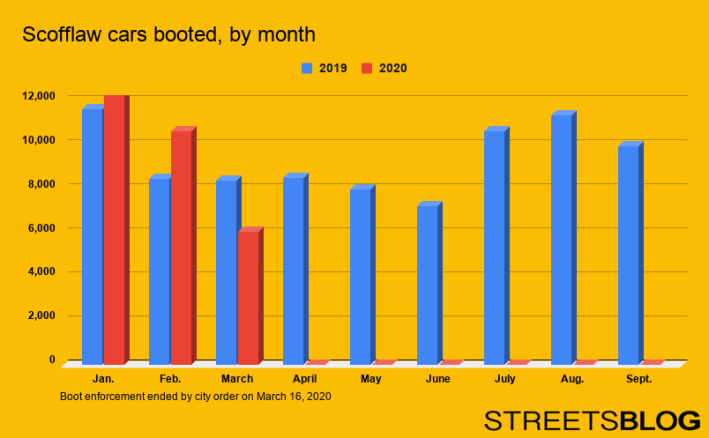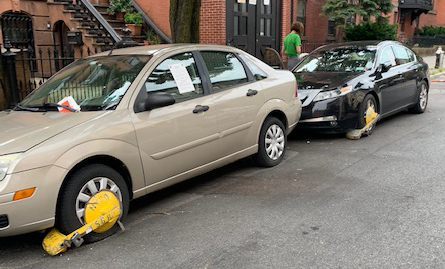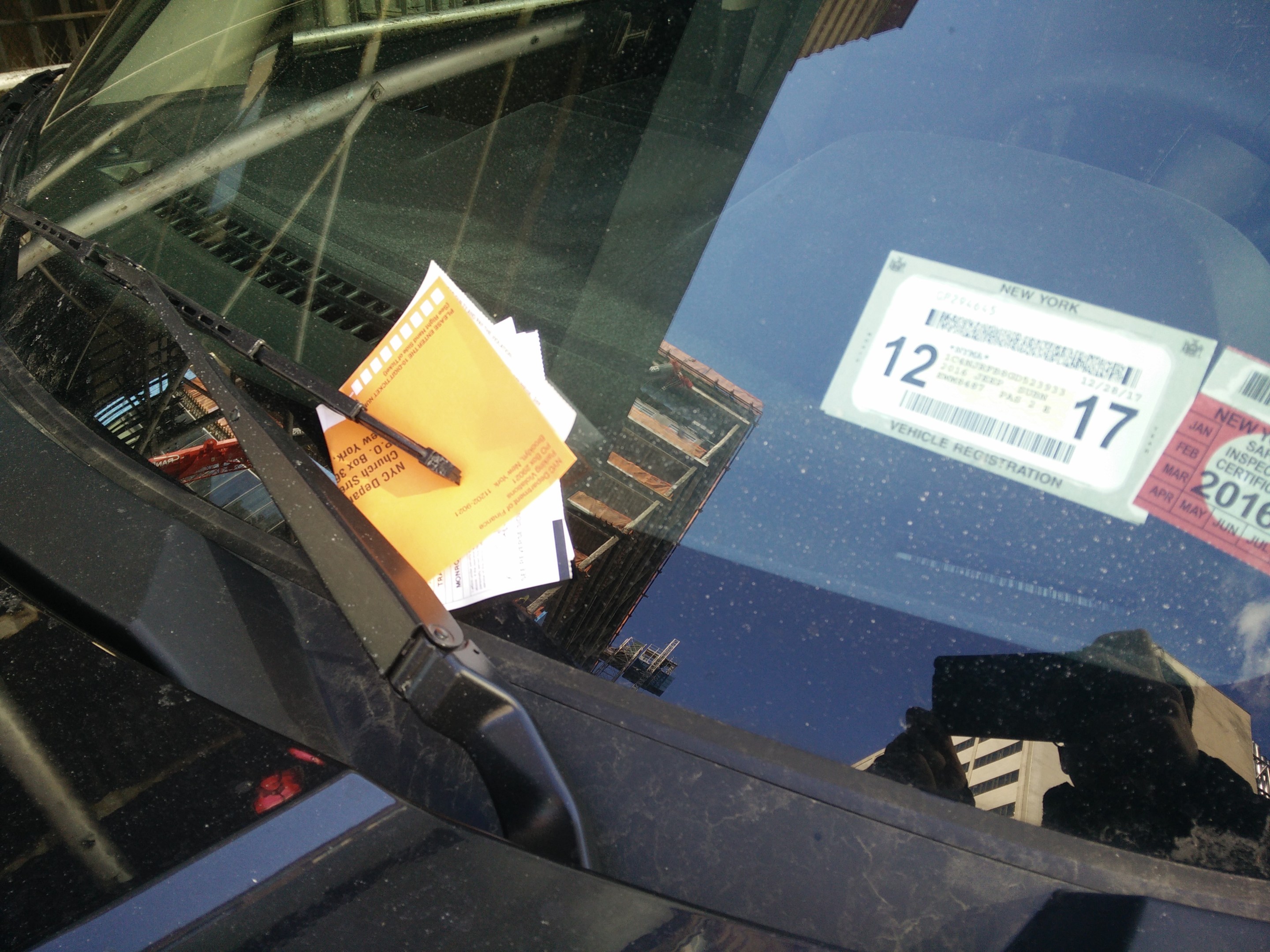It's enough to make you want to boot.
The de Blasio administration's decision to stop immobilizing the vehicles of scofflaw drivers has resulted in tens of thousands of profligate violators to continue driving — and robbed the city of millions of dollars a month in revenue from dangerous summonses such as double-parking, parking in a bike lane or parking in a bus lane.
According to data provided by Republic Immobilization Services, which currently has the contract to boot the cars of drivers with multiple unpaid parking tickets, the city deactivated between 5,000 and 15,000 cars per month before the COVID-19 pandemic hit.
But on March 16, 2020, the Department of Finance suspended the booting program, leaving the city less safe — and eliminating, overnight, the need for Republic Immobilization Services and its 80-person workforce. The agency said it acted in response to an executive order by Gov. Cuomo issued on March 7.

It has also left the city less safe, as all of the cars that were being immobilized by RIS (and the previous contractor, Paylock) have extensive records of violating parking rules. Improperly parked vehicles have led to dozens of deaths over the years, including that of Madison Lyden on Central Park West in 2018.
The decision to stop booting cars also comes as the de Blasio administration decided not to fund the Reckless Vehicle Abatement Act, which would have required the city to remove cars from the roadway if the owner had racked up 15 camera-issued speeding tickets or five red-light tickets.
“Our society idolizes the motor vehicle. That is not the way to live going forward. We cannot put cars before people... or speed over safety,” says @NYCMayor. pic.twitter.com/FJqbCTqMGj
— Families For Safe Streets *Vote on Sammy's Law* (@NYC_SafeStreets) February 26, 2020
"In February, when Mayor de Blasio signed the Dangerous Vehicle Abatement Program, he told advocates and families of crash victims that his city would no longer put cars before people or speed before safety," said Transportation Alternatives spokesman Joe Cutrufo. "But as soon as the pandemic hit New York, he slashed funding for this life-saving program and emboldened lead-footed drivers."
And it's costing the city millions.

Between March and September, 2019, Republic and its predecessor booted 64,052 cars for non-payment of tickets, records show. In the same period this year, only 6,057 cars have been booted. Republic estimates that the average booting nets the city $750, which works about to about $48 million in revenue in the seven months of 2019, but only $4.5 million over the last seven months.
That's a decline of nearly $43.5 million — money that could be spent on schools, parks, food for the poor or ... funding the Reckless Vehicle Abatement Act.
"The program enforces the law as part of Vision Zero against multiple violators which brings in revenue for the city, but really is a safety issue as we get many bad actors off the streets," RIS said in a company statement. "For example, the program focuses on red light violations, speed camera violators, as well as uninsured and unregistered vehicles. Our partnership with the city is important for all New Yorkers and our men and women are ready to get back to work.
The charge to the motorist for the booting itself is $136, but that's tacked on by the booting company — it does not come out of the city's portion.
A spokeswoman for the Department of Finance said that any concern over the lack of booting should be placed to Gov. Cuomo's office.
"Pursuant to the COVID-19 pandemic, New York State issued an executive order that prohibits DOF from assessing penalties against recently issued outstanding parking tickets and camera violations and entering them into judgment," spokeswoman Jennifer Brown told Streetsblog. "Judgment entry is required for the use of the booting program as an enforcement measure for outstanding parking tickets and camera violations. This executive order is still in effect."
It is unclear if the aforementioned executive order truly applies. The governor's order 202.8, "Continuing Temporary Suspension and Modification of Laws Relating to the Disaster Emergency," applied to expiration of driver's licenses and vehicle registrations (among other non-vehicular state rules). The language cited by Brown above is not in Cuomo's order.
Brown also added that "many courts have been closed and there is a concern that if we booted cars, the public may not have had their due process rights in challenging that enforcement."






